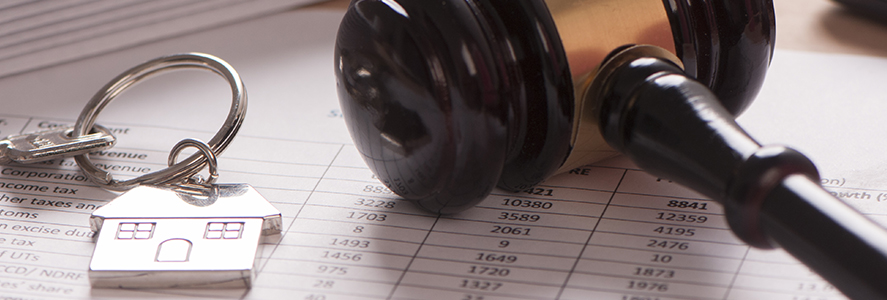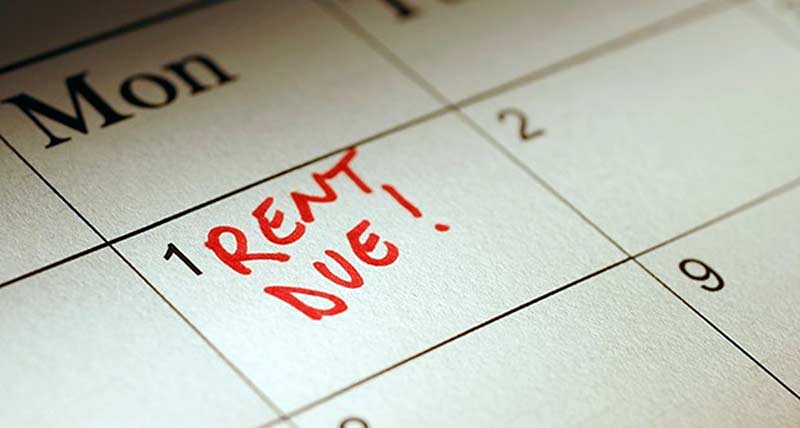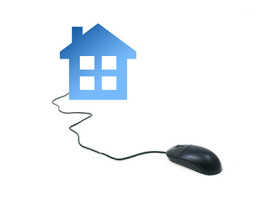
Property management is a tough job at the best of times and is not to be undertaken lightly, as most property investors don’t want the added hassle of managing their property as well. Therefore, TheHouseShop.com has created this list of some of the duties that are part and parcel when managing a property, for those landlords who are considering going it alone.
Treat your property like a business
The first thing all new self-managed landlords must consider are the realities of running and managing a property in the private rental sector. Many landlords come a cropper by not being professional enough, in regards to their relationship with their tenants and this can lead to problems, later on, should the relationship break down.
Private landlords should consider the amount of time and work that managing a property entails, from advertising for new tenants, the upkeep of the property, legalities involved and managing money. Self-managed landlords will need to treat their property like a business, as opposed to a casual hobby that can be dipped in and out of when it suits them.
Potential tenants can spot an unprofessional landlord a mile off and they will move on to another property during their search for a new home when they do. So by treating their property like they would a paid job, self-managed landlords will make a good impression from the start.
Legal requirements involved
By agreeing to take on the task of self-managing a rental property, the legal responsibilities will fall directly to the landlord. It is recommended that landlords brush up on the current property and local authority laws and regulations applicable to your rental property. Many self-managing landlords have reported they found going on a short property management course has helped them to navigate the legal requirements and keep their properties compliant.
These vary from:
- Having a correct Assured Shorthold Tenancy in place and being well versed in eviction law
- EPC requirements
- Gas safety certificate
- Electrical safety
- Fire safety
- Tenancy Deposit Protection
- Maintaining a safe and clean environment
Collecting rent
When self-managing a property, landlords will be responsible for all of the finances, from collecting rent, paying taxes and funding repairs, so it is necessary that they have efficient procedures in place to prevent problems occurring.
Of these, rent collection will be the most important role self-managed landlord will undertake, as if there aren’t regular payments of rent coming in each month, then this will affect their ability to pay off their Buy-To-Let mortgage.
Don’t get caught out so make sure that there is an efficient rent collecting system in place before taking on new tenants.The best method used by many self-managed landlords to get their tenants to pay their rent on time is by setting up a direct debit as part of the rental agreement before they move in.
Advertising property
Self-managed landlords will also need to manage the advertising and viewing process when looking for new tenants, it is worth advertising the vacant property on both online and offline platforms to maximise the adverts exposure to the target audience.
Listing vacant property online is vital in the digital age, as the majority of tenants looking for a new home go to the online property portals first before they start looking elsewhere such as local public notice boards and classifieds sections in newspapers.
Some self-managed landlords are unsure as to how much rent they should charge, so TheHouseShop.com have created a free online rent calculator to guide them in setting the best price for their property. Getting the price right is a key ingredient when creating an online property listing because tenants can tell when a property is overpriced and will move on to another. With the rental market becoming increasingly popular due to the UK’s housing shortage, self-managed landlords can’t afford to lose tenants to the competition due to getting the rent price wrong.
You can also Let for Free and create your own free property listing on TheHouseShop.com, to reach tens of thousands of tenants searching for their dream home.
TheHouseShop.com have an in-depth guide for private landlords letting their property independently online.
Manage property viewings
Once the property advert starts generating enquiries the self-managed landlord will need to start arranging property viewings with potential tenants. It seems obvious, but many self-managed landlords make the mistake of not providing two contact methods for tenants to get in touch with landlords, as if for whatever reason you miss a phone call tenants are able to follow up with an email when arranging viewings.
Tenants are aware of how competitive the rental market is and will be eager to get in touch and secure a new home as quickly as possible, therefore if the self-managed landlord is unprofessional or disorganised with arranging their viewings, they will lose out as the tenants will move on.
Tenant referencing
Tenant referencing is a vital step to try and prevent bad tenants from moving into the self-managed landlord’s property and with many companies offering this service online with the added benefit of passing on the fees to the tenant applying, there is no reason not to employ this step in the property management process.
Getting tenants checked will help sift out the bad apples from the bunch, leaving the self-managed landlord safe in the knowledge that the rent will be paid and the property will be looked after.
Landlords can choose who pays for tenant referencing when using our service below:
Other tasks to be aware of
Repairs and Maintenance
Many self-managed landlords get into difficulties when it comes to carrying out repairs and regular maintenance works because they don’t understand their tenant’s rights in terms of what repairs need to be urgently carried out. For instance, if there is no hot water, the heating isn’t working during winter or the toilets are in operational, these all need to be urgently addressed sooner rather than later.
Rental Appraisal and Increases
It will fall to the self-managed landlord to decide when and by how much the rent should increase and communicate this to their tenants. To do this, the landlords will need to keep an eye on the local property market to get a feel for what the going rate is in their area. Once the correct figure has been determined, the rent increase will need to be communicated to the tenants in accordance with the tenancy agreement.
Property Inspections
Property is an asset and like any investment, it will need looking after, so self-managed landlords will need to take the time to inspect the property for repairs that need to be made. Checking the property every six months is a good length of time and make sure that the tenants have been notified before the inspection is carried out. Whilst doing the inspection, its vital to keep records and take photographs so that there is documented evidence in case there are any disputes about deposit deductions when the tenants move out.
Although this guide might sound daunting now, many self- managed landlords have had successful experiences when going it alone and they have also saved a lot of money that would have otherwise lined the letting agent’s pockets. When making the decision it really boils down to whether or not you feel that you have the time available to looking for your tenants and maintaining the property.












 POSTED BY
POSTED BY 

